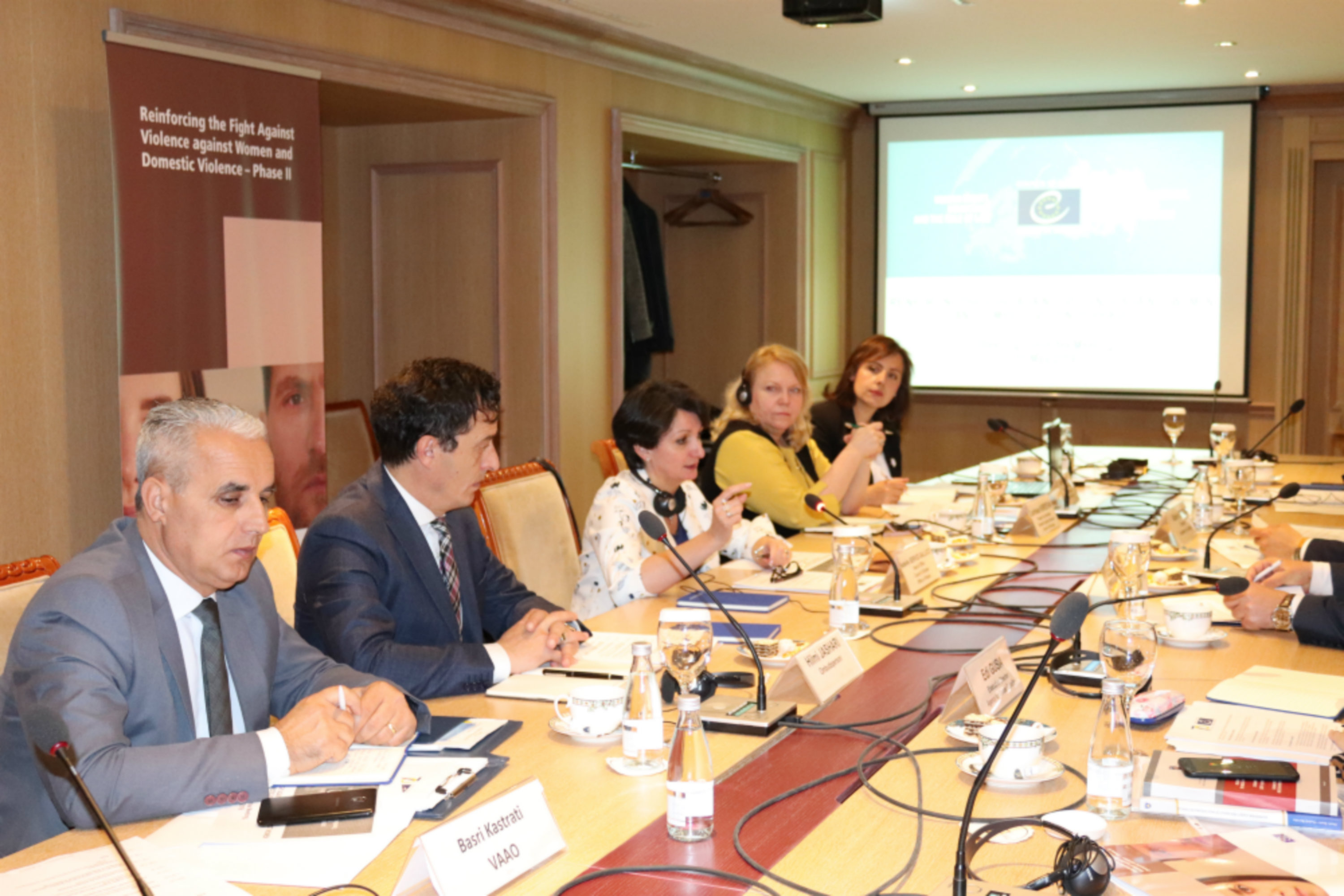On 15 May 2019, was held the first Steering Committee Meeting of the project “Reinforcing the Fight against Violence against Women and Domestic Violence in Kosovo*- Phase II”, co-financed by Norway and the Council of Europe and implemented by the Council of Europe.
- members of the Steering Committee are key beneficiary institutions in the field: the National Coordinator against Domestic Violence, Ministry of Labor and Social Welfare, the Agency for Gender Equality, the Academy of Justice, the Ombudsperson Institution and the Victims Advocacy and Assistance Office.
In this first Steering Committee meeting, the Council of Europe project team presented the project, its aims and expected results, thus noting lines of cooperation with each beneficiary institution. The members discussed concrete activities deriving from the work plan and acknowledged the support of the Council of Europe to strengthening Kosovo*’s institutional capacity to counter violence against women and domestic violence.
More specifically, the project aims to:
-
Increase the knowledge of legal professionals in fostering reporting, support for victims during proceedings, compensation and accountability of perpetrators, through targeted trainings under HELP programme, and ToT on VAW DV.
-
Enhance capacities of relevant institutions to effectively provide support services to victims of violence against women and domestic violence and encourage development of quality Guidelines for Shelters;
-
Assess needs for quality standards on perpetrators programmes; and
-
Raise awareness through established guidelines on effective campaigning for combating violence against women and domestic violence through knowledge-based approach to Council of Europe Istanbul Convention standards and provisions.
* All references to Kosovo, whether the territory, institutions or population, in this text shall be understood in full compliance with United Nations Security Council Resolution 1244 and without prejudice to the status of Kosovo




